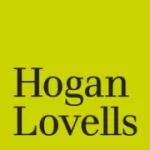On September 17, 2010, the Centers for Medicare and Medicaid
Services (CMS) and the Food and Drug Administration (FDA) issued a
notice describing a new, voluntary parallel review process under
consideration by these agencies for medical products.1
Although still in the early stages of its development, it
represents a potential opportunity for new technologies,
particularly those that would face coverage challenges after FDA
approval, to pursue affirmative coverage on a more expedited
timetable than currently available. The agencies have provided some
details about the parallel review process, and seek comments on a
number of aspects of the contemplated parallel review process,
which must be submitted by December 16, 2010. The agencies also
discuss a small pilot program for the parallel review
process.
Currently, companies developing new technologies approach FDA and
CMS sequentially. They must first demonstrate to the FDA that the
product is safe and effective through clinical trials, the
protocols for which are often developed in conjunction with the
FDA. Once FDA grants approval, manufacturers seek coverage under
the Medicare program and by other insurers. Because CMS typically
does not consider a national coverage determination (NCD) request
for a new product until it has FDA approval, there is a significant
coverage gap since the NCD process can take 9-12 months.
Under the contemplated parallel review process, CMS would begin its
NCD-related review while FDA is working on its premarket review of
the product. The agencies propose a process that would be
voluntary, where all three stakeholders (i.e., manufacturer, CMS,
FDA) would need to consent to use of the process for a particular
product, although the agencies request comments as to whether
others should be allowed to initiate a review. A sponsor requesting
parallel review would have to meet the various submission
requirements of FDA and CMS, although the agencies would work on
ways to streamline the requirements to increase efficiency and
decrease duplication. The agencies also seek comment on whether the
sponsor can meet with both agencies to develop clinical trial
protocols that would meet the standards of both agencies,
potentially lessening the number of studies a manufacturer would
need to conduct. The description of the parallel review process is
largely devoid of details, but the list of issues identified for
public comment addresses topics that may be included in the more
detailed "joint draft guidance" that the agencies will
issue after reviewing the public comments on this notice.
While the agencies are moving forward on a joint draft guidance,
they will consider a "small number of requests from sponsors
of innovative medical devices for parallel review on a pilot
basis," 75 Fed. Reg. at 57047. The procedures for
participating in the pilot will be announced at a later time. This
pilot seems to present an important opportunity for a medical
product under development that might be subject to a national
Medicare noncoverage determination to lessen the time after FDA
approval to permit Medicare contractors to pay for the
technology.
As a result of the dual strength of its FDA and Health practices,
Hogan Lovells US LLP is uniquely positioned to advise clients on
the potential important aspects of the parallel review process.
Given the limited nature of the pilot program, we urge companies to
carefully consider whether to approach the agencies for
participation in the parallel review pilot program.
With respect to the full-scale parallel review process, the
formative time for this process is now, and the comments that FDA
and CMS receive will be important to ensure that the program
fulfills the stated goals of expediting approval and coverage of
new products while adhering to established standards that many
companies have been working under for years. With our extensive
experience with the FDA approval and clearance and Medicare NCD
processes, the Hogan Lovells US LLP team of FDA and Health lawyers
can help you plan a course for taking advantage of this
opportunity. If you would like additional information on the
parallel review process or the pilot program, please contact the
Hogan Lovells US LLP lawyer with whom you work, or any of the
contacts listed.
Footnote
1. See 75 Fed. Reg. 57045 (Sept. 17, 2010) (edocket.access.gpo.gov/2010/pdf/2010-23252.pdf)
The content of this article is intended to provide a general guide to the subject matter. Specialist advice should be sought about your specific circumstances.

